Raising chickens in NYC: Laws, tips, and everything else you need to know
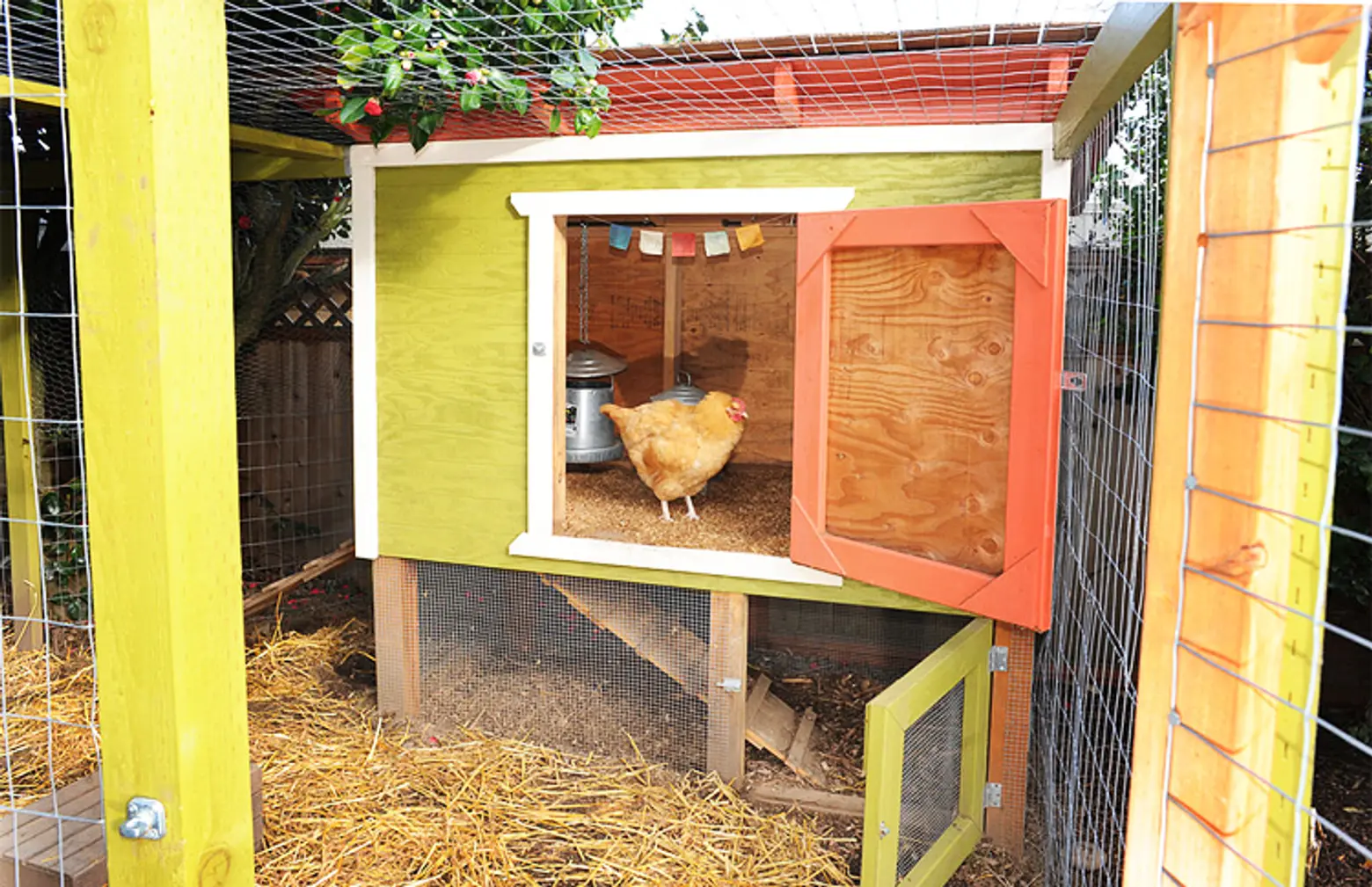
6sqft’s ongoing series Apartment Living 101 is aimed at helping New Yorkers navigate the challenges of creating a happy home in the big city. This week, we cover everything you need to consider when raising chickens in the city.
In a city where simply finding a balcony large enough for a pot of basil can be a challenge, one may be surprised to discover that chicken coops can be found across all five boroughs. Chickens were once primarily kept by older city residents, including many who come from places in the world where a backyard supply of fresh eggs is taken for granted. More recently, everyone from Park Slope housewives to Bushwick hipsters appears to be embracing the backyard chicken craze.
New Yorkers are not alone when it comes to raising chickens. Since 2010, cities across the United States have passed laws permitting chickens in residential areas. The recent chicken craze is most often explained as an extension of the growing urban agricultural movement, which includes community gardens and various farm-to-table initiatives.
However, as Greg Anderson of Just Food explains, urban farming is not necessarily new, especially not in New York City. “The need for urban farming skills grows from New York City’s history of agriculture and the fact that we are one of the few cities that never stopped growing food in some way or form. NYC went from farms to Victory Gardens to community gardens to urban farming, and we are still looking for new ways to grow food in the city, such as rooftop farms and indoor hydroponics.”
When it comes to chickens, New York is also somewhat unique. Unlike most U.S. cities that banned backyard chickens decades ago and only recently reintroduced laws to make raising them legal again, New York has never been chicken free.
“Yes chickens and rabbits, as far as I know, have always been legal in NYC. Citizens have the right to keep chickens and rabbits as written in NYC Health Code, Article 161.19,” explains Anderson who also supported City Chicken Project, a prior program run by Just Food that offered education and resources to aspiring urban chicken farmers.
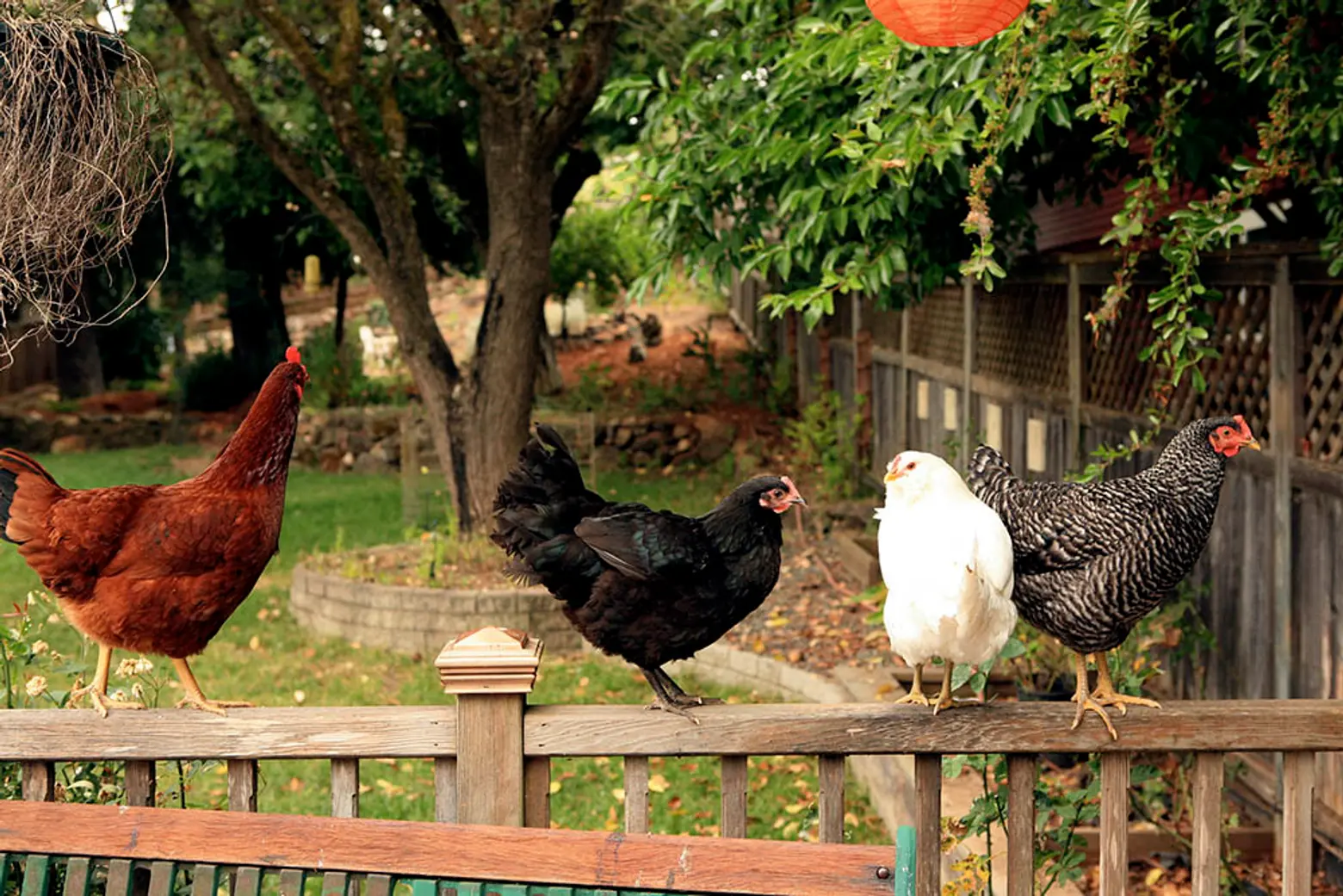 Image by thedabblist / Flickr
Image by thedabblist / Flickr
Hens are legal—roosters, geese, ducks, and turkeys are not
Raising chickens is legal in all districts of the city. This means that whether you’re on the Upper East Side, Tribeca, or the Bronx, you have the right to raise chickens on your property, but not just any chicken or just any type of fowl.
Hens (female chickens) are legal but roosters (male chickens) are not. Other fowl, including geese, ducks, and turkeys, are also outlawed. If you’re thinking about hiding roosters or other contraband fowl on your property, bear in mind that fines can run anywhere from $200 to $2,000, and you can also expect your outlawed fowl to be carted away by city officials. On the bright side, you can keep as many hens as you like. That’s right—there is no limit to the number of hens you can raise as long as you continue to adhere to the city’s guidelines on keeping chickens.
The most important guideline regarding chickens is that your chickens must avoid creating so-called “nuisance conditions.” While open to interpretation, “nuisance conditions” include foul smells, flies, vermin, and excessive noise. Another important guideline is to ensure your neighbors do not complain. The city takes neighbor complaints about chickens seriously into account. If you’re anticipating problems, you may even want to consult your neighbors prior to investing in your first chickens. Likewise, you may want to test the waters by starting on a small scale.
For the most part, your chickens—unless you’re running a commercial operation out of your backyard—are simply considered pets. This means that in New York City, just as you don’t need a permit to keep a cat or dog, there is no need to get a permit to keep a chicken or many chickens. Likewise, there’s no need to keep your chickens caged up. They are free to roam around your property as they please. To avoid potential complaints from neighbors, however, you will are advised to take extra precautions to ensure your chickens stay on your property.
In other words, fence proofing may be a good idea. While not required by law, if you do want to build a chicken coop, the city’s bylaws are also extremely flexible. Your coop can be located anywhere on your property and built without obtaining a permit.
If there’s any doubt that NYC is an extremely chicken-friendly city, look no further than the city’s own Department of Parks & Recreation. They periodically sponsor workshops for residents interested in learning how to raise their own chickens.
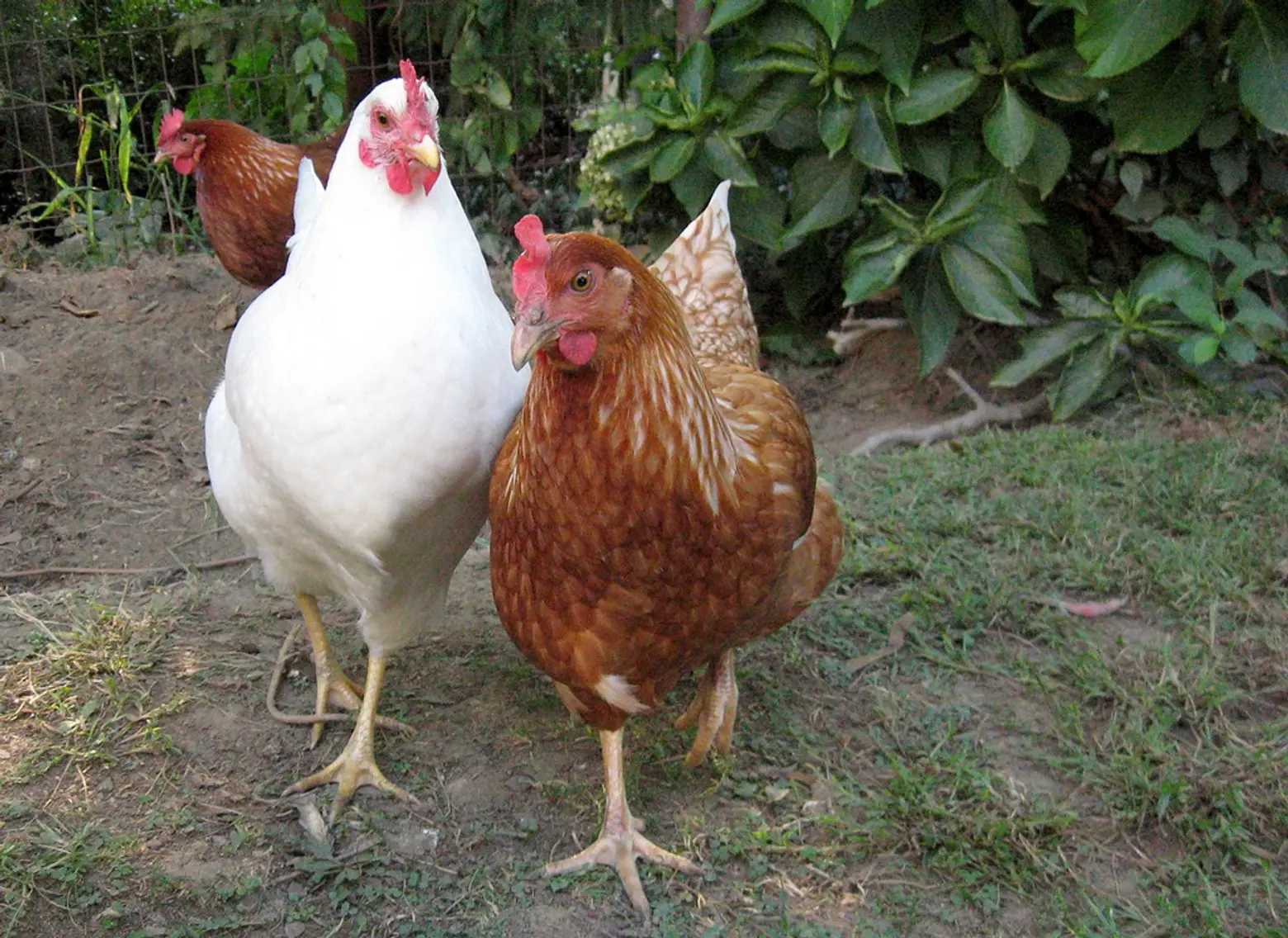 Image by Steven-L-Johnson / Flickr
Image by Steven-L-Johnson / Flickr
Tips on surviving and thriving with chickens
While avoiding run-ins with neighbors and the law is one consideration, in order to ensure your chickens survive and thrive, you’ll require a bit more knowledge.
First, you’ll need to choose your breed. Just like dogs, chickens come in many shapes and sizes and some are known to produce better eggs and make better urban pets than others. To get started, you may want to purchase a copy of “Storey’s Illustrated Guide to Poultry Breeds.”
Second, unless you come from chicken-raising stock yourself, you’ll likely need to give yourself a crash course on care and feeding. For example, you should be prepared to feed your chickens a balanced diet that is at least 16-percent protein based. Young chicks require a special diet. Water is also a key ingredient, so ensure you have a fresh source of water available. If your chickens are unable to rehydrate for more than 12 hours, they may stop laying eggs for weeks.
However, Anderson from Just Food observes: “One of the biggest challenges is learning to care for your birds, which includes health checks and learning about possible illnesses that can occur. You should find a veterinarian that’s willing to care for chickens.”
Anderson further emphasizes, “Sometimes, in New York, it can be a challenge buying birds. A larger challenge can be protecting your flock from predators like raccoons, opossums, and hawks.”
A photo posted by Just Food (@justfoodnyc) on Aug 4, 2015 at 2:24pm PDT
Chickens and the Social World
Finally, local chicken owners emphasize that you should also be prepared to socialize with your chickens. Chickens, like other pets, thrive on human company. Melanie and Phil, artists in their late twenties who rent in Bushwick and raise chickens in their backyard (their landlords live next door and have their own chicken coop, too) report that their chickens greet them when they come home.
“I used to have a cat but I was allergic,” says Melanie, “It may sound crazy, but the chickens are a great substitute, but now instead of cleaning a litter box, I can compost my pets’ waste. And of course, we have fresh eggs too.”
Phil, who grew up in Manhattan, agrees that the chickens are great companions. “I always wanted a dog, but I grew up in a tiny apartment. The chickens are the pet therapy I never had as a child growing up in a high rise.”
Chickens, however, may also have a higher purpose as a living and engaging part of the broader urban agricultural movement. As Anderson reflects, “I think in the future, community-based urban agriculture will continue to grow because tackling food issues also allows people to tackle other social and economic issues within their communities such as racial equity, gentrification, and climate change.”
RELATED:
- Beekeeping finds a home throughout NYC’s five boroughs
- Tips for Keeping Pets Happy and Healthy in an Apartment
- My 1200sqft: Inside Model Summer Rayne Oakes’ Williamsburg Oasis Filled With 500+ Plants
This post was originally published on 6sqft on July 24, 2017
Interested in similar content?
Leave a reply
Your email address will not be published.

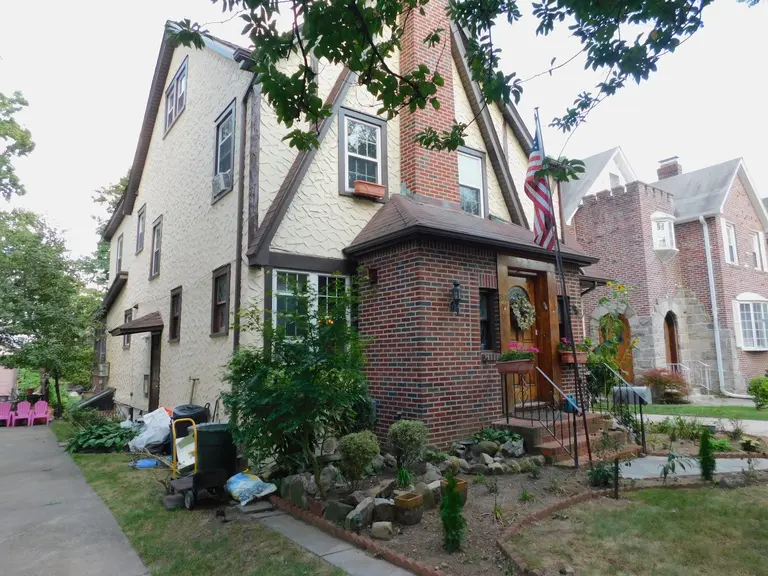
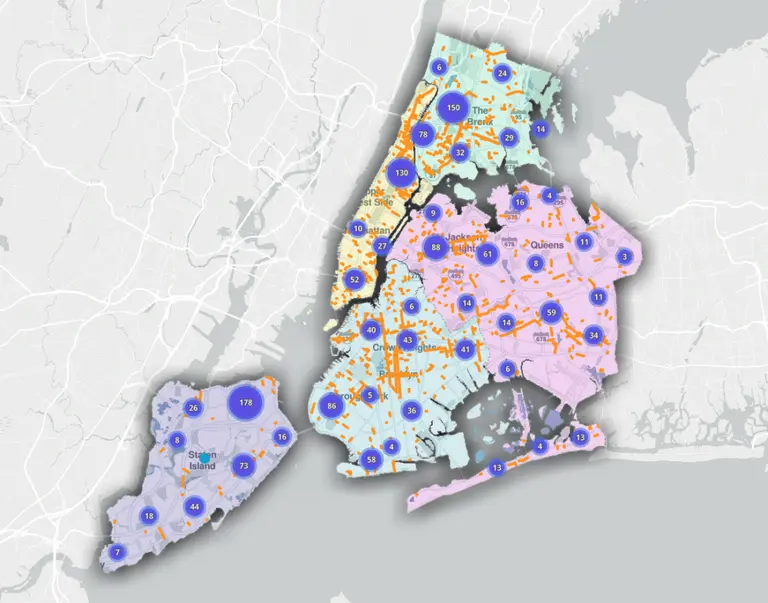


























two things—hens, like human females, have a reproductive cycle most active in early age—after 3 years old, production of eggs declines (just like women, we don’t tend to have babies late in life) MANY of these newbee chicken keepers come to the craft unaware of this biological fact and are annoyed when their birds slow egg production. This is when the humans will dump their birds at the pound or worse, dump their former provider of daily breakfast, out on the street. DO NOT abandon your former pets this way! The words of the famous French writer—“You...
Read more